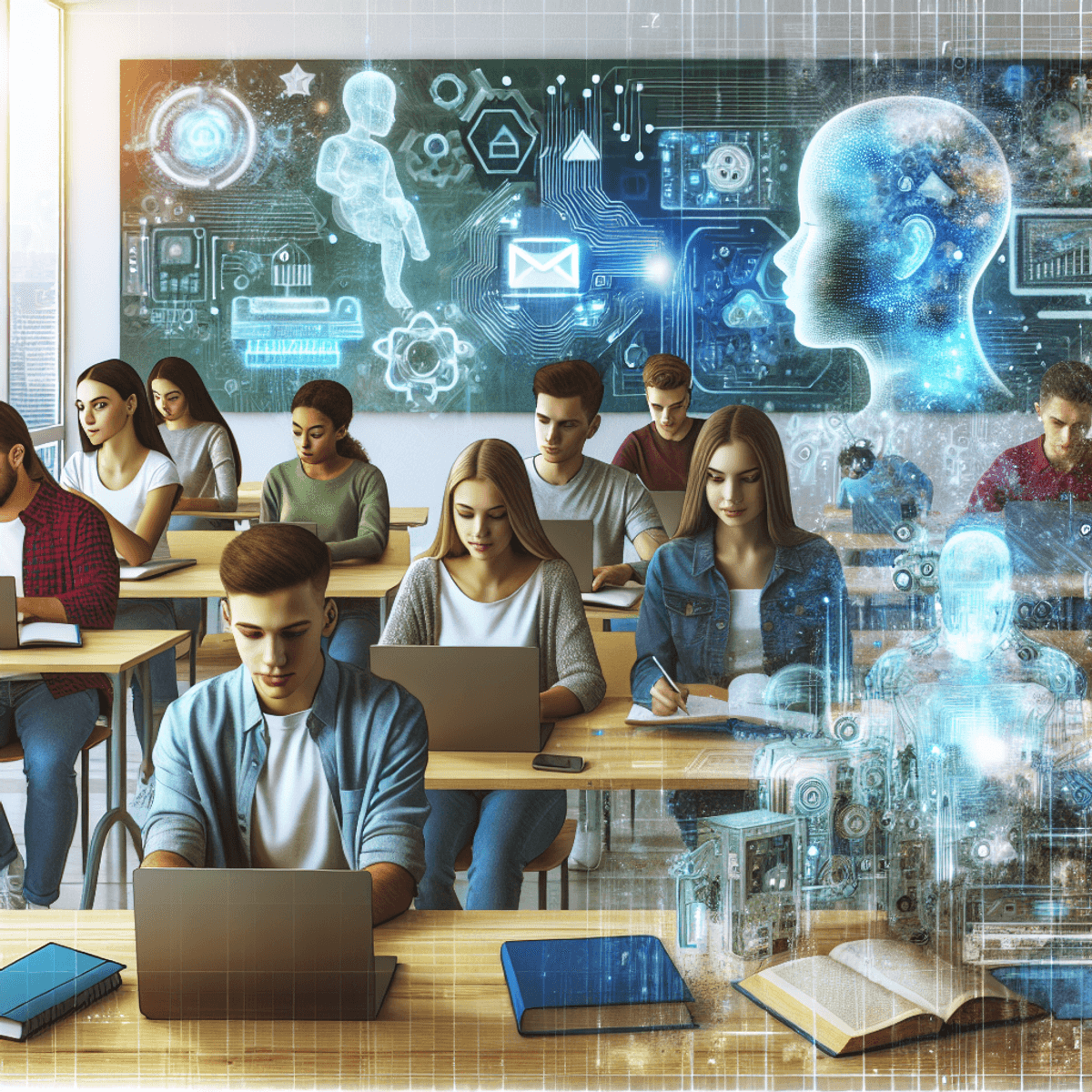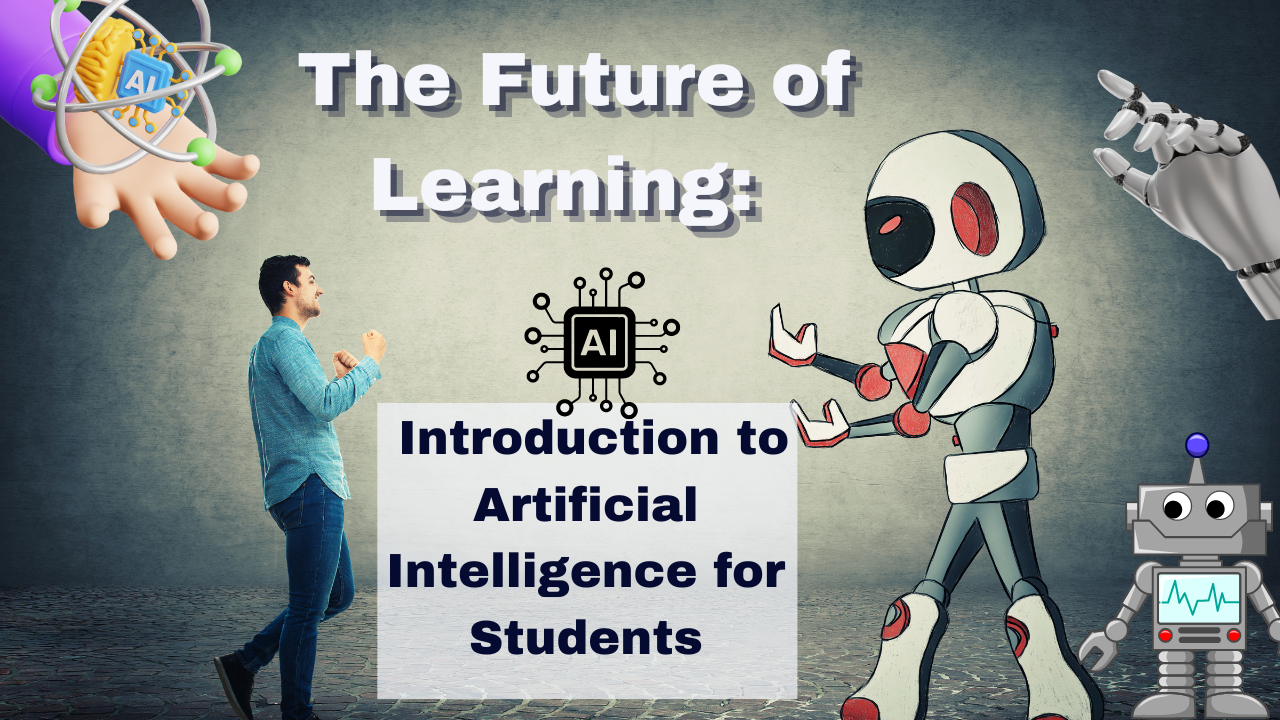Artificial Intelligence (AI) is changing various sectors, including education. AI refers to the simulation of human intelligence in machines, enabling them to perform tasks such as reasoning, learning, and problem-solving. Its relevance in today’s world cannot be overstated, as it shapes how we interact with technology daily.
Why AI Matters
- Integration in Daily Life: Voice assistants like Siri and Alexa make everyday tasks easier. Self-driving cars are becoming a reality, showcasing AI’s capabilities.
- Future of Learning: Understanding AI is essential for students. It not only enhances their learning experiences but also prepares them for future careers.
- Career Opportunities: The job market for AI professionals is booming. Students equipped with AI knowledge will have access to high-demand roles across various industries.

As students explore the world of AI, they open doors to exciting opportunities. Embracing AI education fosters a generation that can navigate an increasingly intelligent landscape confidently.
Understanding Artificial Intelligence
Artificial Intelligence (AI) refers to the simulation of human intelligence in machines programmed to think and act like humans. This technology encompasses a variety of capabilities, allowing machines to perform tasks that typically require human cognitive functions.
What is Artificial Intelligence?
AI can be understood as the ability of a machine to perform tasks that involve reasoning, learning, and problem-solving. It utilizes algorithms and data to make decisions, adapt to new information, and improve over time. By mimicking human behaviors, AI systems can process vast amounts of data more efficiently than humans.
Key Components of AI
The core components that define AI include:
- Reasoning: The ability to draw conclusions from available information.
- Learning: The capacity to acquire knowledge and skills through experience.
- Problem-Solving: The skill to identify solutions for complex issues by analyzing data and patterns.
These elements work together, allowing AI systems to function effectively across various applications.
Examples of AI in Daily Life
You may encounter AI in numerous everyday scenarios. Some noteworthy examples include:
- Voice Assistants: Devices like Amazon’s Alexa or Apple’s Siri utilize natural language processing (NLP) to understand and respond to user commands.
- Self-Driving Cars: Autonomous vehicles rely on AI technologies such as computer vision and machine learning to navigate roads safely.
- Recommendation Systems: Streaming platforms like Netflix use AI algorithms to analyze your viewing history and suggest content tailored to your preferences.
By integrating these technologies into daily life, you can see how AI improves convenience and efficiency while continuously evolving based on user interaction. Understanding these fundamentals prepares you for deeper discussions on the role of AI in education and beyond.
The Role of AI in Education
Artificial Intelligence is transforming the educational landscape. Here’s how AI can enhance learning experiences for students:
**1. **Personalized Learning
AI systems analyze individual student performance, adapting content to meet specific learning needs. This customization helps in addressing varying skill levels, ensuring that every learner progresses at their own pace.
**2. **Intelligent Tutoring Systems
These systems provide real-time feedback and support. For instance, platforms like Carnegie Learning use AI to guide students through complex problems in mathematics, offering hints and explanations tailored to their understanding.
3. Enhanced Engagement
Educational technology powered by AI can make learning more interactive. Tools like chatbots assist students with queries outside classroom hours, ensuring continuous engagement and support.
Integrating AI into various subjects expands its utility beyond just computer science:
4. Mathematics
AI-driven platforms can present problem sets that adapt in difficulty based on a student’s response pattern. This approach fosters deeper comprehension and retention of mathematical concepts.
5. Literature
AI applications analyze texts, enabling students to explore themes, character development, and writing styles. Tools like Grammarly provide insights into writing mechanics while suggesting improvements for clarity and effectiveness.
The impact of AI on teaching methodologies is significant:
6. Data-Driven Insights
Educators gain access to analytics that reveal trends in student performance. This information allows for targeted interventions, helping teachers refine their instructional strategies.
7. Collaborative Learning
AI facilitates group projects by pairing students based on complementary strengths and weaknesses. Such collaboration not only enhances social skills but also promotes peer-to-peer learning.
Embracing these advancements in education equips students with essential skills for the future while fostering a more engaging and effective learning environment.
Preparing Students for Future Careers in AI
The job market is changing quickly, with significant growth expected in AI and machine learning jobs in the next few years. Industry reports say that as more businesses use AI technologies, hundreds of thousands of new positions will be created. This trend brings exciting career opportunities in technology for students, making it crucial for them to understand AI concepts early on.
High Demand and Lucrative Salaries
AI professionals are among the most sought-after individuals in the job market. Companies are eager to fill roles such as data scientists, machine learning engineers, and AI researchers. The demand for these professionals translates into attractive compensation packages. Many positions offer six-figure salaries, reflecting the value that organizations place on expertise in artificial intelligence.
Importance of Early Exposure
Introducing students to AI concepts at a young age equips them with vital skills and knowledge necessary for future career readiness. Familiarity with AI can spark interest in technology and encourage critical thinking.
Engaging students through interactive platforms like Google’s Teachable Machine allows them to explore machine learning without requiring extensive coding knowledge. Such hands-on experiences foster creativity and problem-solving abilities.
Incorporating AI education across various subjects enhances its relevance:
By blending AI principles into mathematics, science (e.g., robotics or environmental studies), art (e.g., generative design), or literature classes (e.g., exploring narrative structures through algorithmic storytelling), educators prepare students for interdisciplinary applications of technology.
This approach not only broadens their understanding but also emphasizes the multifaceted nature of careers involving AIPreparing today’s youth for tomorrow’s workforce hinges on their understanding of artificial intelligenceAs they develop skills relevantto this evolving fieldthey position themselves as valuable contributors toa future dominatedby intelligentsystems





